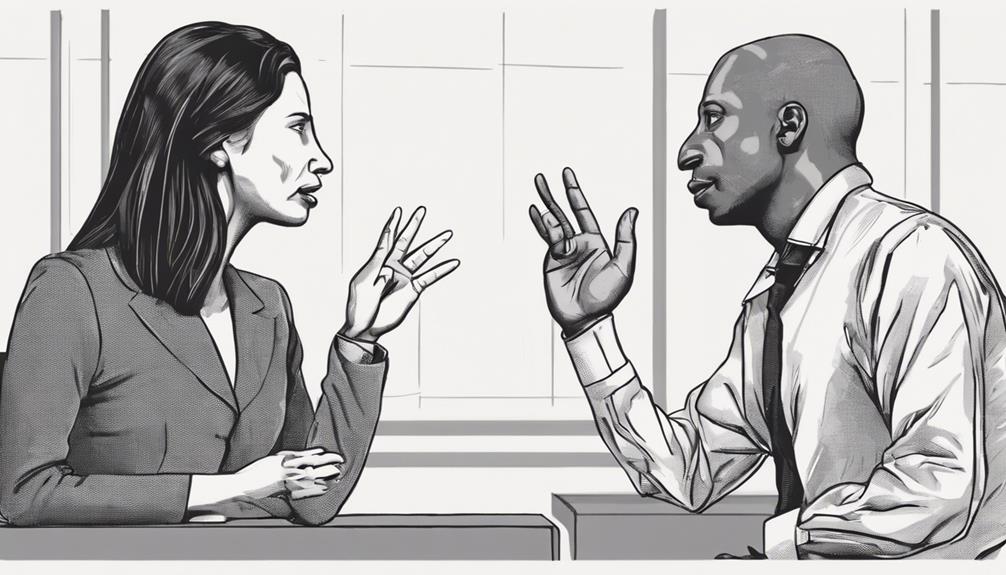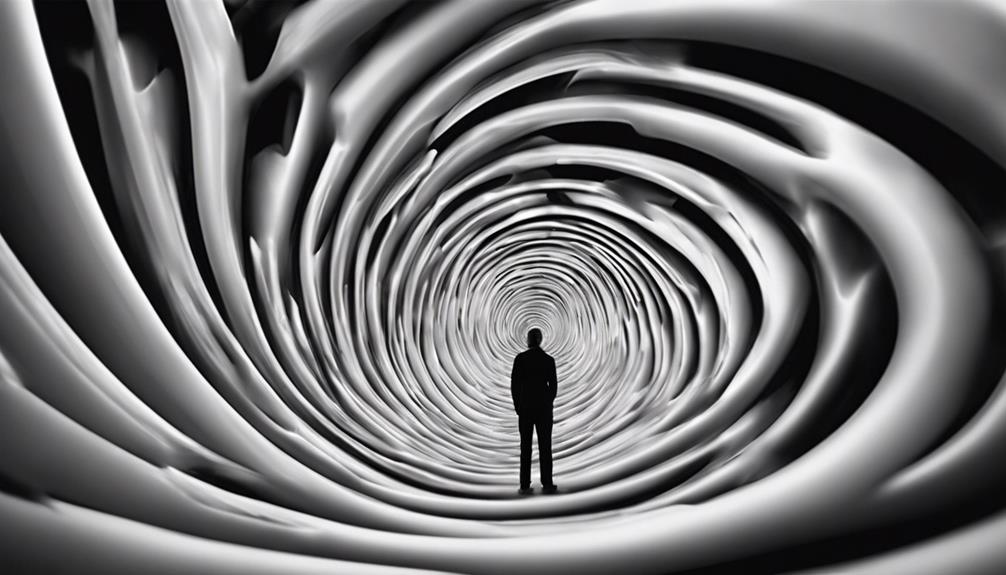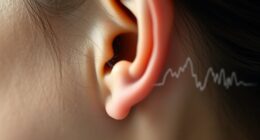Let’s be real, the temptation to blast music through our windows is hard to resist, but have you ever considered the impact it could have on our hearing health?
As we navigate through our daily lives, the constant exposure to loud noises can quietly take a toll on our ears without us even realizing it.
Understanding how this seemingly harmless habit can lead to potential hearing loss is crucial.
Stay tuned as we unravel the secrets of protecting our ears and discover practical tips to safeguard our auditory well-being in a world filled with noise.
Key Takeaways
- High volume from windows can damage hearing by harming delicate ear cells.
- Protect ears with earplugs or breaks to prevent irreversible auditory damage.
- Regular check-ups detect and prevent worsening hearing loss from high volumes.
- Be mindful of noise levels to avoid immediate and long-term hearing issues.
Understanding the Impact of High Volume
Exposure to high volume sounds can have detrimental effects on our hearing health, causing damage to the delicate hair cells in the ear and potentially leading to permanent hearing loss. Volume can cause Hearing.
The impact of high volume on hearing is profound and often underestimated. Prolonged exposure to loud noise, whether from music, machinery, or other sources, can result in irreversible damage to the auditory system. This damage primarily affects the hair cells in the cochlea, which are responsible for translating sound vibrations into electrical signals that the brain can interpret. When these hair cells are subjected to high volumes, they can become overworked and eventually die off, leading to hearing loss.
Additionally, exposure to loud noise can also trigger the development of tinnitus, a condition characterized by persistent ringing or buzzing in the ears. It's crucial to understand that even short bursts of high volume sounds, such as explosions or gunshots, can cause immediate and severe damage to our hearing.
Therefore, taking proactive measures to protect our ears from excessive noise exposure is essential for preserving our hearing health in the long term.
Common Symptoms of Hearing Damage

Indications of hearing damage commonly include persistent ringing in the ears, difficulty in understanding speech clearly, and a sense of sounds being muffled. Individuals with hearing damage may also exhibit sensitivity to loud noises and find it challenging to follow conversations in noisy environments. As part of ear protection, recognizing these symptoms early is crucial to prevent further damage and maintain overall hearing health. Below is a table summarizing common symptoms of hearing damage:
| Symptom | Description |
|---|---|
| Ringing in the ears (tinnitus) | Persistent noise or ringing sensation in one or both ears. |
| Difficulty understanding speech | Struggle to comprehend conversations, especially in noisy or crowded settings. |
| Muffled sounds | Sensation of sounds being unclear, dulled, or lacking sharpness. |
Being attentive to these signs and seeking professional evaluation promptly can aid in the management and prevention of hearing loss. Remember, early intervention plays a key role in protecting your ears and preserving your hearing abilities.
Risks of Prolonged Exposure
Continuously exposing oneself to high volume levels poses a significant risk to the delicate hair cells in the inner ear, potentially leading to irreversible damage and long-term hearing issues. High volume can cause various detrimental effects on hearing health, including:
- Development of Tinnitus: Prolonged exposure to high volume levels can result in the development of tinnitus, a condition characterized by a persistent ringing, buzzing, or hissing sound in the ears. This debilitating condition can significantly impact quality of life and may be challenging to manage.
- Noise-Induced Hearing Loss: High volume exposure is a common cause of noise-induced hearing loss, particularly in industries with high noise levels. This type of hearing loss is often gradual but can lead to permanent damage if preventive measures aren't taken.
- Immediate Auditory Damage: Even brief exposures to loud noise can cause immediate damage to the auditory system. This underscores the importance of protecting your ears from high volume levels to prevent both short-term and long-term consequences.
Effective Ways to Protect Your Ears

To safeguard our hearing health, implementing effective strategies to protect our ears is paramount in preventing potential damage from high volume exposure. Wearing earplugs or earmuffs in noisy environments significantly reduces the risk of hearing loss by acting as a barrier against loud sounds.
Taking regular breaks from prolonged exposure to loud noises allows your ears to recover and lowers the chances of overexposure. It's crucial to maintain safe volume levels when using headphones to prevent hearing damage. Opting for noise-canceling headphones can help reduce external noise, allowing you to listen at lower volumes without compromising sound quality.
Additionally, being mindful of noise levels in recreational activities like concerts can safeguard your ears from potential harm. By incorporating these practices into our daily routines, we can proactively protect our hearing and reduce the risk of hearing loss associated with high volume environments.
Importance of Regular Hearing Check-Ups
Regular monitoring of one's hearing health through routine check-ups is crucial for early detection and prevention of potential hearing loss. Here are three key reasons why regular hearing check-ups are essential:
- Early Detection: Regular check-ups can help identify early signs of hearing loss that may otherwise go unnoticed. Detecting hearing impairment in its initial stages allows for timely intervention and management strategies to be implemented.
- Assessment of Hearing Impairment: Hearing screenings conducted during check-ups can assess the extent of any existing hearing impairment. These assessments provide valuable information about the level of hearing loss and guide professionals in developing personalized treatment plans.
- Prevention of Deterioration: Early intervention through regular check-ups can prevent further deterioration of hearing. Monitoring changes in hearing health over time enables healthcare providers to intervene proactively and implement measures to preserve and protect the individual's hearing capabilities. Regular check-ups are, therefore, crucial for maintaining optimal ear health and overall well-being.
Frequently Asked Questions
Can Driving With the Windows Down Damage Your Hearing?
Yes, driving with the windows down can damage our hearing. Noise levels inside a car at highway speeds can exceed safe limits, leading to potential hearing loss over time.
It's essential to be cautious of this risk and take steps to protect our ears from prolonged exposure to loud wind noise while driving. Using ear protection like earplugs or noise-canceling headphones can help mitigate this danger and safeguard our hearing health.
How Do I Turn off Ear Protection in Windows?
Sure thing!
To turn off ear protection in Windows, right-click on the volume icon. Choose 'Sounds' then 'Playback' to find device settings. Double click on the playback device and uncheck the ear protection option. Apply the changes and test volume adjustments.
This simple process can help prevent sudden loud volume spikes that may cause hearing loss. Remember, always prioritize your ear health by taking such precautions.
How Can I Protect My Ears From Hearing Loss?
We can safeguard our hearing by using ear protection in loud environments, taking breaks from loud sounds, and maintaining safe volume levels with headphones.
Noise-canceling headphones can reduce the need for high volumes. Being aware of noise levels in activities like concerts is crucial for hearing health.
Regularly implementing these practices helps prevent damage to delicate ear structures and minimizes the risk of hearing loss.
How Can You Protect Yourself From Excessive Sound?
To protect ourselves from excessive sound, we must be vigilant about our surroundings and exposure to loud noises. Utilizing ear protection like earplugs or earmuffs, taking breaks from noisy environments, and maintaining safe volume levels with headphones are essential strategies. Noise-canceling headphones can also help reduce external noise, minimizing the need for high volumes.
Being mindful in recreational settings, like concerts, can prevent sudden exposure to damaging sound levels.
Conclusion
In conclusion, we must recognize the importance of protecting our ears from high volume to prevent hearing loss. By taking proactive measures such as using earplugs and maintaining safe volume levels, we can safeguard our hearing health.
Regular hearing check-ups are crucial to monitor any potential damage. Let's remember that our ears are delicate and valuable, and by prioritizing their protection, we can enjoy a lifetime of clear and healthy hearing.











